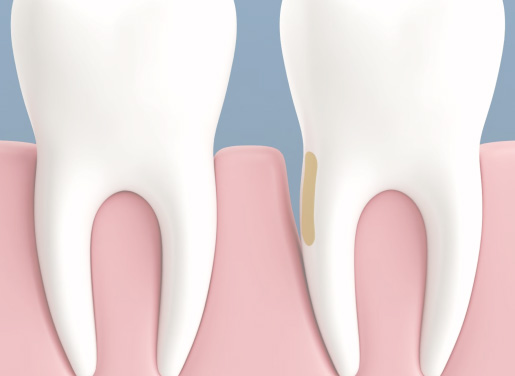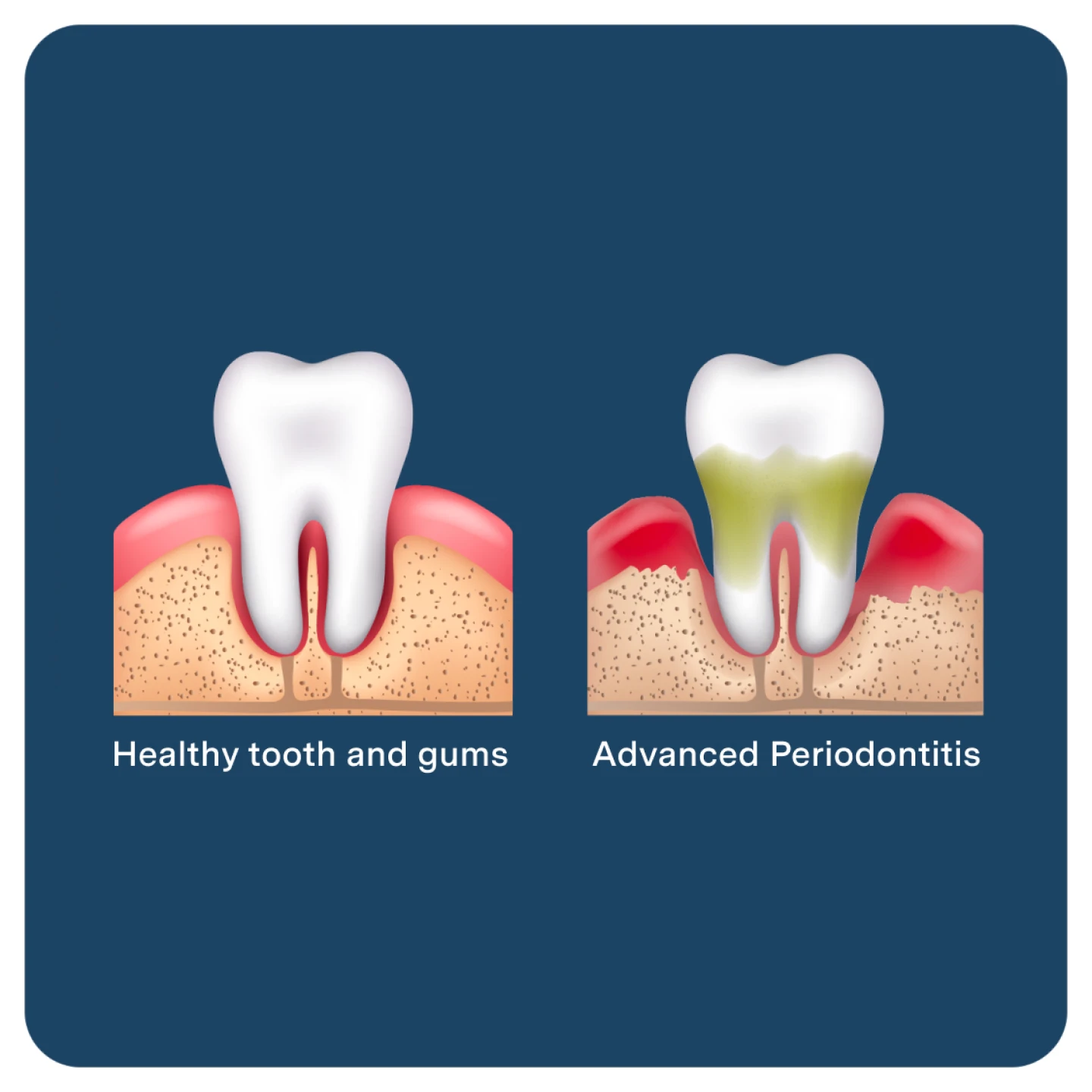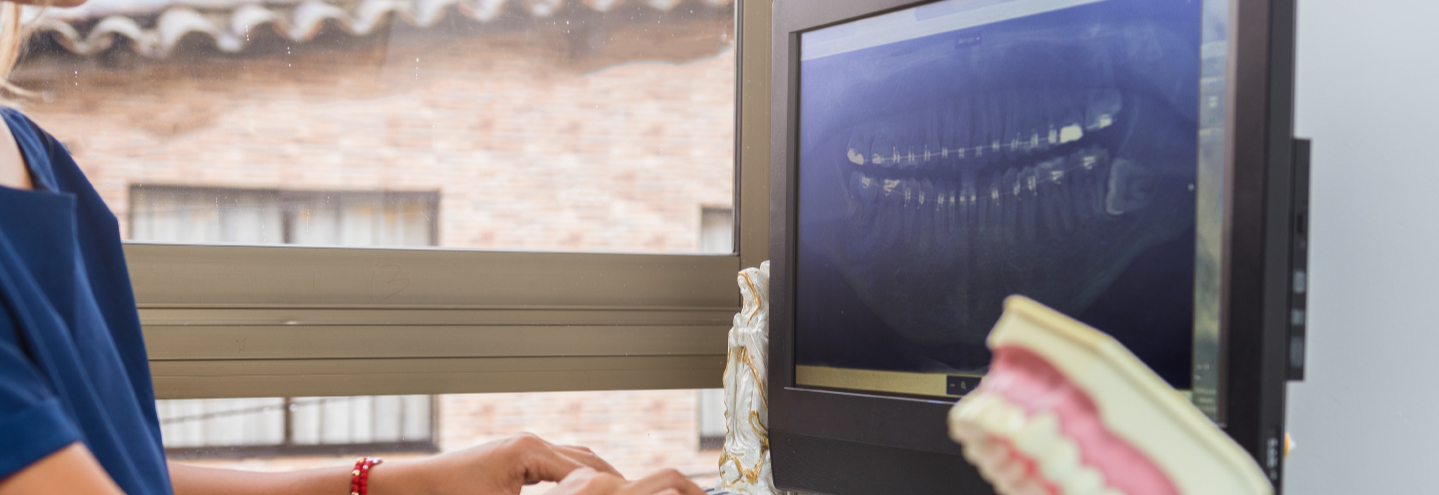
Scaling and root planing
What is a dental deep cleaning?
Dental deep cleaning, also called scaling and root planing (SRP), is a non-surgical dental procedure aimed at treating gum disease or periodontitis. It’s prescribed to patients after a comprehensive exam.
How is it different than regular teeth cleaning?
Regular teeth cleaning is preventative dental care, but scaling and root planing goes beyond the surface, targeting the roots and the infection in your gums. It scales away plaque on teeth, tartar and bacteria that regular brushing and cleaning can’t reach.
What to expect during dental deep cleaning appointment
During your dental deep cleaning treatment at one of our Celebrate Dental & Braces offices, we make the process easy and straightforward for you. Here’s a look into the steps.
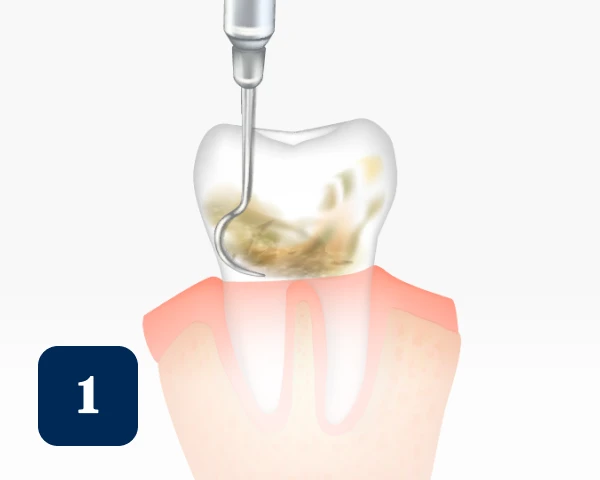
Scaling
The first step in deep cleaning involves scaling, where your dentist or dental hygienist uses hand and power instruments to remove plaque and tartar from the surfaces of your teeth and below the gum line. This process may involve both manual scaling tools and ultrasonic scalers, which use high-frequency vibrations to loosen and remove stubborn deposits.
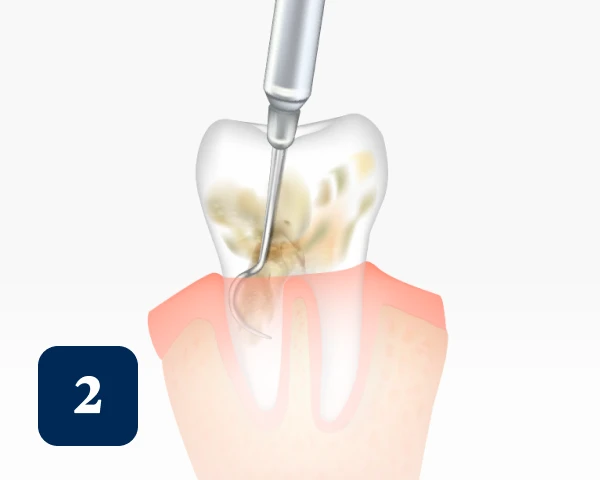
Root planing
Following scaling, root planing is performed to smooth out rough areas on the roots of the teeth, making it more difficult for bacteria to adhere and accumulate. This step also helps the gum tissue to reattach to the roots of the teeth, promoting healing and reducing the depth of gum pockets.
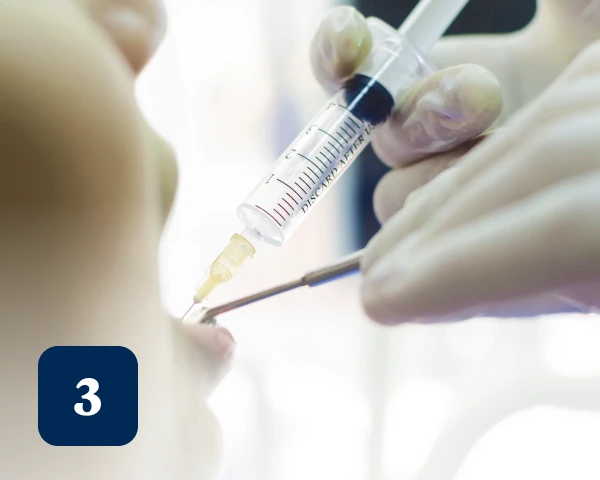
Local anesthesia
Depending on the extent of the treatment and the sensitivity of your gums, your dentist may administer local anesthesia to ensure your comfort throughout the procedure. This numbing agent helps to alleviate any discomfort or pain associated with deep cleaning.

Follow-up care
After deep cleaning, it’s important to maintain good oral hygiene habits, including regular brushing, flossing and using antibacterial mouthwash. Your dentist may also recommend more frequent dental check-ups and cleanings to monitor your oral health and prevent the recurrence of gum disease.
Benefits of deep cleaning teeth
A deep dental cleaning improves your oral health and your lifestyle.
Stronger teeth and healthier gums
Scaling and root planing helps to guard against root decay and progression of gum disease.
Bigger, brighter smile
Improve the appearance of your teeth and get healthy gums. SRP protects against tooth decay and gum disease.
Fresher breath and a cleaner feeling mouth
Say goodbye to bad breath and feel confident in that first ‘hello’.
Scaling and root planing FAQs
Is scaling and root planing the same as deep cleaning?
Yes, scaling and root planing are synonymous with deep cleaning. While the terms may be used interchangeably, they both refer to the same non-surgical treatment aimed at addressing gum disease (periodontitis) by removing plaque, tartar and bacteria from below the gum line and smoothing out rough spots on the roots of the teeth. This comprehensive cleaning process helps to halt the progression of gum disease, promote gum tissue healing and preserve oral health.
What is the difference between a deep cleaning and a regular cleaning?
A dental deep cleaning, also known as scaling and root planing, involves removing plaque and tartar build-up from below the gum line, which cannot be addressed by regular cleaning.
How often should I get a dental deep cleaning?
The frequency of deep cleaning depends on the severity of your periodontal disease. Our dental professionals will recommend a personalized treatment plan after a thorough examination.
How long does it take to recover from scaling and root planing?
The recovery time from scaling and root planing can vary from person to person, depending on the complexity of the treatment and individual factors such as oral health, immune system response and adherence to post-treatment care instructions. Generally, most people experience mild discomfort or sensitivity in the treated areas for a few days following the procedure. However, full recovery typically takes about one to two weeks.
During this time, it’s essential to follow your dentist’s or dental hygienist’s recommendations for post-treatment care, which may include:
- Oral hygiene: Continue to brush and floss your teeth regularly but be gentle around the treated areas to avoid irritation.
- Avoid hard or sticky foods: Stick to soft foods and avoid chewing on the side of your mouth that was treated to prevent discomfort or disruption of the healing process.
- Use of pain relief: Over-the-counter pain relievers such as ibuprofen or acetaminophen can help alleviate any discomfort or soreness.
- Rinsing with mouthwash: Your Celebrate Dental & Braces dentist will provide mouthwash and recommend rinsing your mouth to reduce inflammation or infection and promote healing.
- Follow-up appointments: Attend any scheduled follow-up appointments with your dentist to monitor your healing progress and ensure that any remaining tartar or plaque buildup is addressed.
Following these guidelines and maintaining good oral hygiene habits can help expedite the healing process and minimize any potential complications. If you experience prolonged or severe discomfort after scaling and root planing, you must contact your local Celebrate Dental & Braces dentist for further evaluation and guidance.
How painful is scaling and root planing?
Scaling and root planing is commonly a non-surgical treatment but depending on your sensitivity, your dentist may provide a numbing agent.
Will my insurance cover the cost of dental deep cleaning?
Many insurance plans contribute toward the cost of periodontal treatments. Please consult with your provider and our office can assist with understanding your benefits and coverage.
How much is a dental cleaning without insurance?
The cost may vary. We offer competitive dental cleaning costs, ensuring transparency with the cost for each procedure in your treatment.
Your path to healthier gums today
Invest in your oral health by scheduling a comprehensive exam with our committed Celebrate Dental & Braces team today. We’re ready when you are!
Our Doctors’ Affiliations





